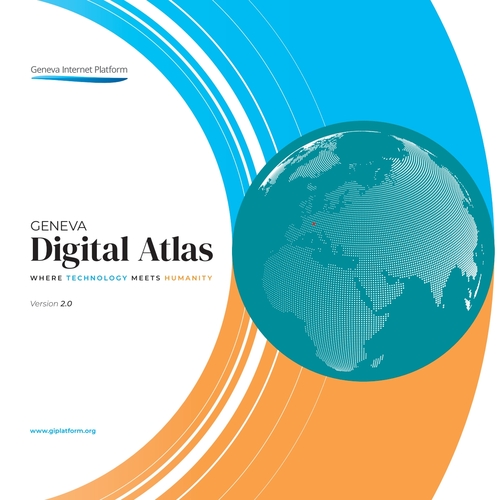Vulnerabilities in digital products and networks leading to cyberthreats raise security concerns from individual users to international security and peace. While States hold primary responsibility, meaningful cooperation with non-state actors, such as the private sector, academia, civil society, and the technical community, is crucial to foster a secure, open, and peaceful cyberspace. However, what are those other actors expected to do? Where and how can they support states in ensuring the security and stability in cyberspace?
Join us on December 7th for the launch of the Geneva Manual – a comprehensive guide on non-state actors’ contributions to the implementation of cyber norms.
The Geneva Manual will undergo continuous development in the years ahead to encompass a wide range of cyber norms, guided by discussions with the multistakeholder community.
Established by the Swiss Federal Department of Foreign Affairs and led by DiploFoundation, with support of the Republic and State of Geneva, C4DT, Swisscom and UBS, the Geneva Dialogue particularly asks how the norms and confidence-building measures (CBMs) might be best operationalised (or implemented) by relevant actors as a means to contribute to international security and peace.
Programme
09:45 – 10:00 (CET)
Welcome coffee
10:00 – 10:05
Introduction: Setting the scene
10:05 – 10:30
Opening remarks
- H.E. Mr Benedikt Wechsler, Ambassador and Head of the Digital Division, Swiss Federal Department of Foreign Affairs
- Dr Jovan Kurbalija, Executive Director of DiploFoundation and Head of the Geneva Internet Platform (GIP)
- Mr Florian Schütz, Federal Cyber Security Delegate and Head of the National Cyber Security Centre (NCSC)
- H.E. Mr Burhan Gafoor, Ambassador and Permanent Representative of Singapore to the United Nations in New York, Chair of the UN Open-Ended Working Group
10:30 – 11:45
The Geneva Manual & cyber norms
Presentation of the Geneva Manual
- Ms Anastasiya Kazakova, Cyber Diplomacy Knowledge Fellow at Diplo Foundation
Discussion: What do relevant stakeholders have to say about their roles and responsibilities in implementing the norms?
- Mr Daniel Klingele, Senior Advisor, International Security Division, FDFA and Swiss representative to the UN OEWG
- Ms Katherine Getao, Cyber Hygiene, Cyber Diplomacy, and ICT Strategy and Governance Consultant, former CEO of ICT Authority in Kenya and the Kenyan representative to the UN GGE
- Mr Xiang Zheng Teo, Vice President of Advisory, Consulting, Ensign InfoSecurity
- Ms Madison Q. Oliver, Advisory Curation Manager, GitHub Security Labs
- Mr Juan Pablo Parra, Researcher of the Civic Participation Area, Karisma Foundation
- Mr Jan Martin Lemnitzer, Assistant Professor, Department of Digitalization, Copenhagen Business School
Moderated by Mr Vladimir Radunović, Director, E-diplomacy and Cybersecurity Programmes at DiploFoundation.
11:45 – 12:00
Coffee break
12:00 – 13:30
Testing the Manual: Simulation exercise
Imagine: A critical vulnerability in the software code underpinning important ICT systems around the world has been discovered. Dire consequences are looming. We all need to act – and act fast. Time to test the Geneva Manual!
13:30 – 14:30
Lunch
14:30 – 16:00
Panel discussion: Tomorrow’s challenges and opportunities: Can norms and regulations keep pace with emerging technology?
- Ms Annie Machon, Formerly MI5, currently a privacy campaigner, author, media commentator, and international public speaker
- Mr Moctar Yedaly, Former Minister of Digital Transformation and Innovation, Government of Mauritania
- Ms Anita Lamprecht, Active member and ambassador of the non-profit legal think tank Liquid Legal Institute e.V.
Moderated by Mr Jovan Kurbalija, Executive Director of DiploFoundation and Head of the Geneva Internet Platform (GIP).
16:00 – 16:20
Inspirational talk
Dr Cory Doctorow, Special Advisor, Electronic Frontier Foundation
16:20 – 16:30
Closing and next steps
17:00
Reception hosted by DiploFoundation and the Republic and State of Geneva
World Meteorological Organization (WMO) 7bis, avenue de la Paix
The inaugural edition of the Manual focuses on two norms related to supply chain security and responsible reporting of ICT vulnerabilities.
The event will take place in a hybrid format: in situ in Geneva, and online. To register to participate online, please follow this link.









